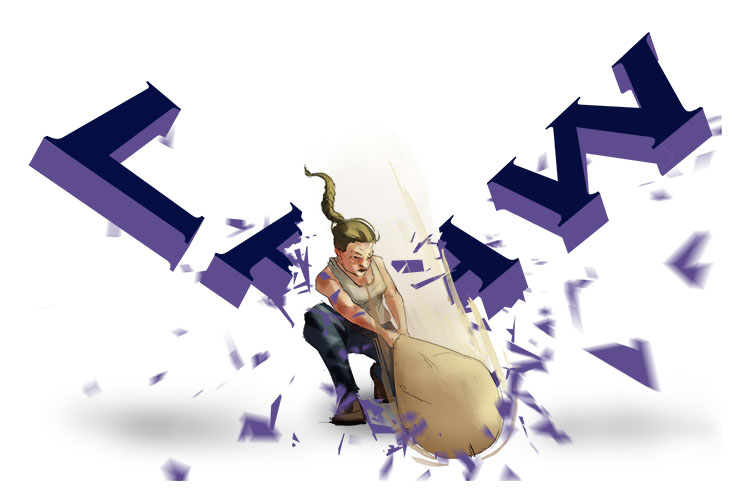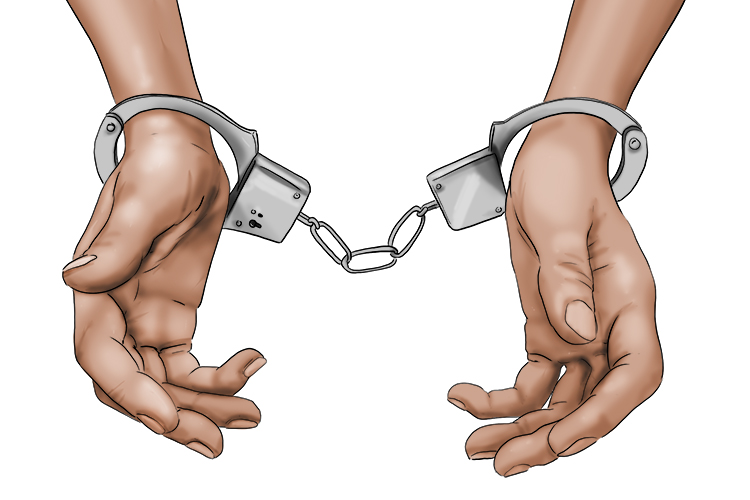Crime – Action which breaks the law
To remember the meaning of the term Crime, use the following mnemonic:
A crime is committed only when she breaks the law.

There are three types of crime:
- Crimes against the person – offences causing harm to a person, for example, murder, rape, grievous bodily harm (GBH) and hate crimes.
- Crimes against property – offences that damage or deprive people of their property, for example, arson, burglary and trespassing.
- Crimes against the State – offences that could endanger everyone or affect the smooth running of society, for example, terrorism, selling state secrets and perjury.
Causes of crime are generally held to include background (the environment a person was brought up in), mental illness, addiction to drugs or alcohol, poverty, greed, hate, and opposition to laws.

Many followers of religions believe in forgiveness, and it is notable that some victims of the worst crimes, and/or their relatives, have publicly declared that they forgive the perpetrators, citing their faith.
However, the overall picture of religious attitudes to crime and punishment is mixed. For instance, while some avowed Christians support the death penalty in what they feel are appropriate cases, others passionately believe Jesus's proclamation that anyone can be saved. So, while some form of punishment is required, they feel the state should not take anyone's life.




